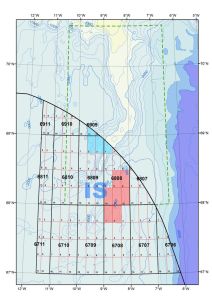Ithaca Energy on the Icelandic continental shelf
Ithaca Energy has bought the British oil- and gas exploration company Valiant Petroleum for GBP 203 million (approximately USD 310 million), in cash and stock.
 Ithaca Energy is a North Sea oil and gas exploration, development and production company with offices in Calgary, Canada and Aberdeen, Scotland. The Company was incorporated in Canada in 2004. Ithaca’s strategy is to grow through project asset acquisitions, development of assets within the portfolio and through license rounds.
Ithaca Energy is a North Sea oil and gas exploration, development and production company with offices in Calgary, Canada and Aberdeen, Scotland. The Company was incorporated in Canada in 2004. Ithaca’s strategy is to grow through project asset acquisitions, development of assets within the portfolio and through license rounds.
Smaller oil producers and explorers in the North Sea are consolidating in a drive to revive flagging output in British waters. The deal will enable Ithaca to double its 2013 production forecast from oilfields in the North Sea, to 14,000-16,000 barrels of oil equivalent per day. Ithaca has stated the deal will help it transform itself into a leading mid-cap North Sea oil and gas operator, with proven and probable reserves of about 74 million barrels of oil equivalent.
 In a study published in last December, the University of Aberdeen forecasted that British oil output from the North Sea will rise in the next few years, reflecting more investment, high prices and tax breaks. What is more interesting, in an Icelandic perspective, is that Ithaca Energy now becomes a direct player in oil exploration on the Icelandic continental shelf. Last year (2012), Valiant Petroleum was awarded a license for exploration and production of hydrocarbons in the Dreki Area, Northwest of Iceland (area marked with blue color on the map).
In a study published in last December, the University of Aberdeen forecasted that British oil output from the North Sea will rise in the next few years, reflecting more investment, high prices and tax breaks. What is more interesting, in an Icelandic perspective, is that Ithaca Energy now becomes a direct player in oil exploration on the Icelandic continental shelf. Last year (2012), Valiant Petroleum was awarded a license for exploration and production of hydrocarbons in the Dreki Area, Northwest of Iceland (area marked with blue color on the map).
According to movements on the stock market it seems that the acquisition is expected to strengthen the projects that were part of Valiant’s portfolio. This may be good new for Iceland. When the deal was announced, Valiant’s share price rose 35 per cent. How the aquisition will affect exploration on the Icelandic continental shelf will be realized in the coming summer and years.













